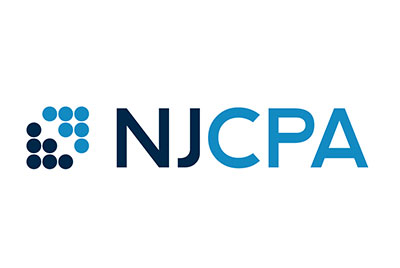CPAs Are More Despondent Over New Jersey’s Economy Than the U.S.’s Amid Governor Murphy’s Final $58.8 Billion Budget
–
July 1, 2025

Respondents Cite Need for Reduced Regulations and Lower Interest Rates
Amid the final $58.8 billion New Jersey budget signed by Governor Murphy on June 30, a New Jersey Society of Certified Public Accountants’ (NJCPA) survey of nearly 500 finance and accounting members taken in June found that they have a more pessimistic view of New Jersey’s economy for the second half of 2025 compared to the national economy. More than 55% expected New Jersey’s economy to worsen, while 36% said it would fare about the same, compared to 45% who believed the national economy would worsen during that timeframe, 31% who said it would get better and 24% who expected it to remain the same.
Respondents were decidedly more negative on the state’s economic outlook this year compared to the June 2024 edition of the survey when there was an even response (43%) between the respondents who believed the state’s economy would worsen and those who said it would stay the same. At that time, nearly 50% believed the national economy would stay about the same, while 35% believed it would worsen.
Top challenges for respondents’ businesses this year include political headwinds at the state and national level (57%), unfriendly state and federal business policies (43%) and employee and benefit costs (29%). This compares with last year’s top three concerns of inflation (57%), political challenges at the state and federal level (53%) and availability of skilled personnel (47%).
“Our members provide invaluable insight into the challenges businesses face at the state and national levels and how these issues impact everyday business decisions,” noted Aiysha (AJ) Johnson, MA, IOM, CEO and executive director at the NJCPA. “It’s a reminder of how important CPAs are in growing businesses and planning for the future as well as being resources for New Jersey Legislature.”
Governor Murphy’s final budget included a full payment to the state’s pension systems of $7.2 billion; $12.1 billion for K-12 school aid; a new exemption for small business investments and reforms to the Angel Investor Tax Credit; and $4.3 billion in direct property tax relief for New Jersey homeowners and renters. Overall, the budget represents a 4% increase in annual spending and a $1.5 billion structural spending gap, though it maintains a surplus of $6.7 billion. There are tax increases for online gambling, sports betting, cigarettes and vaping as well as on the highest tier of realty transfer fees.
Survey respondents recommended that the state reduce the cost of benefits to public employees, citing it as “unsustainable.” They also mentioned overreach on corporate taxes and conducting multistate business. However, they praised efforts by Governor Murphy’s Administration to make it more affordable to retire in New Jersey, such as retirement exemptions and the Stay NJ program, which will reimburse eligible taxpayers for 50% of their property tax bill. The fiscal year 2026 budget allocated $600 million towards the Stay NJ program.